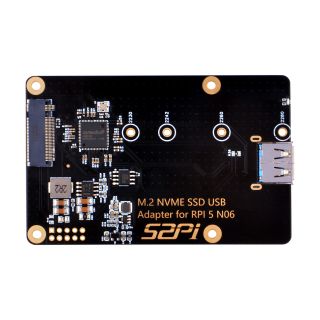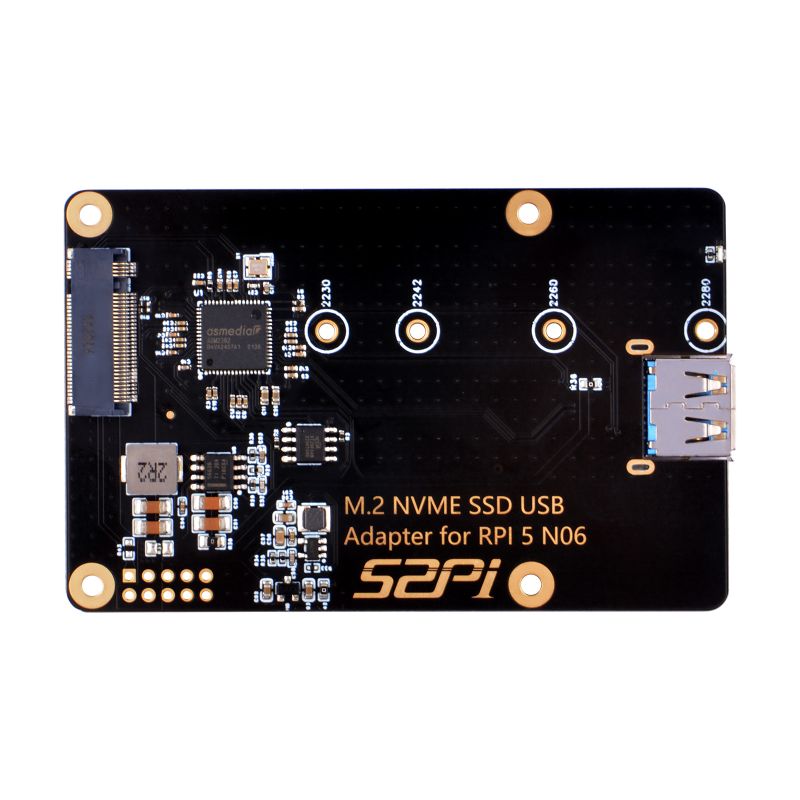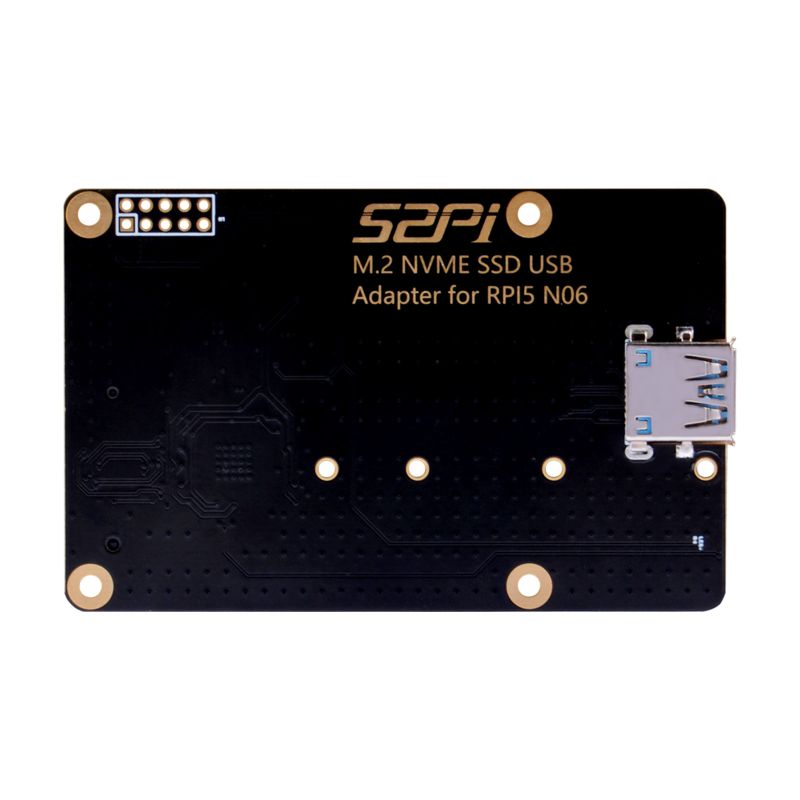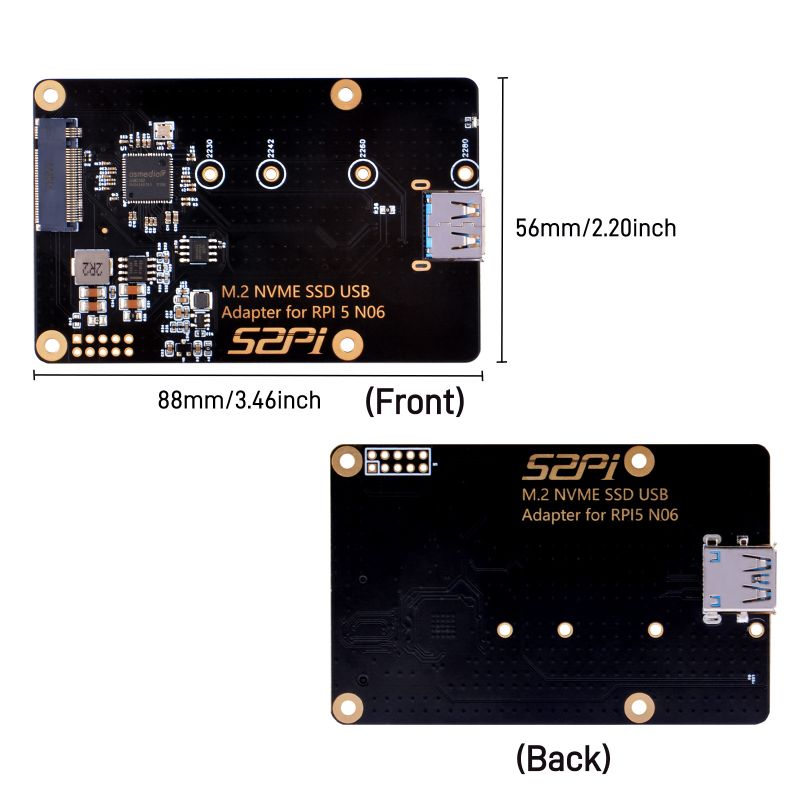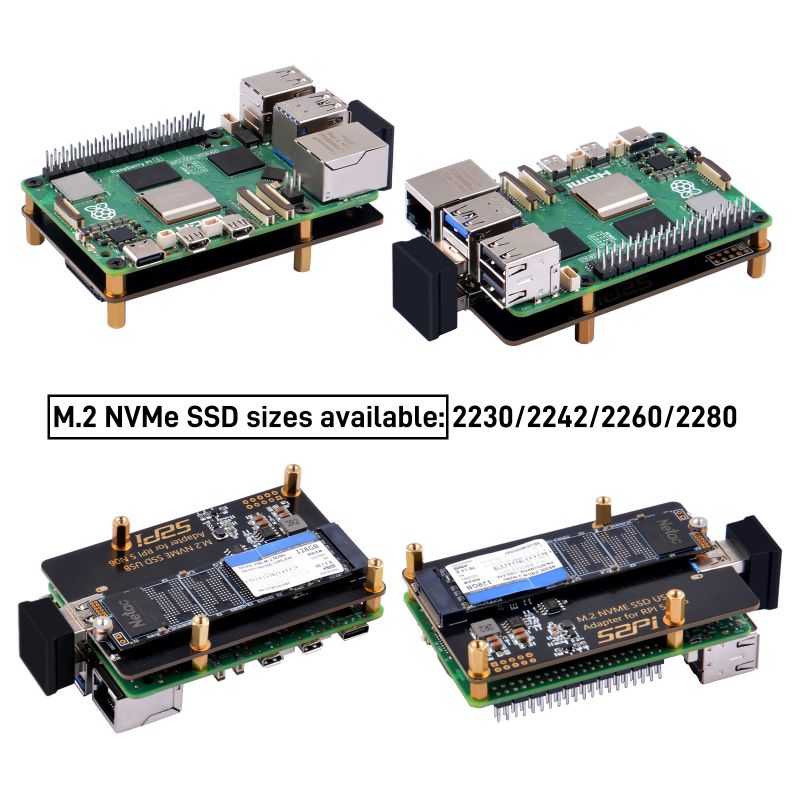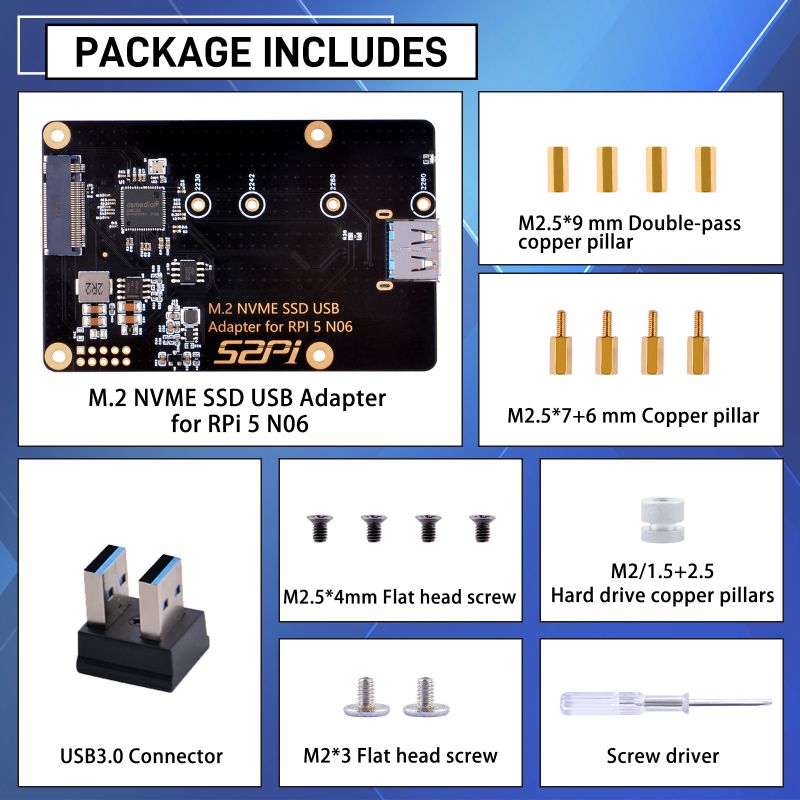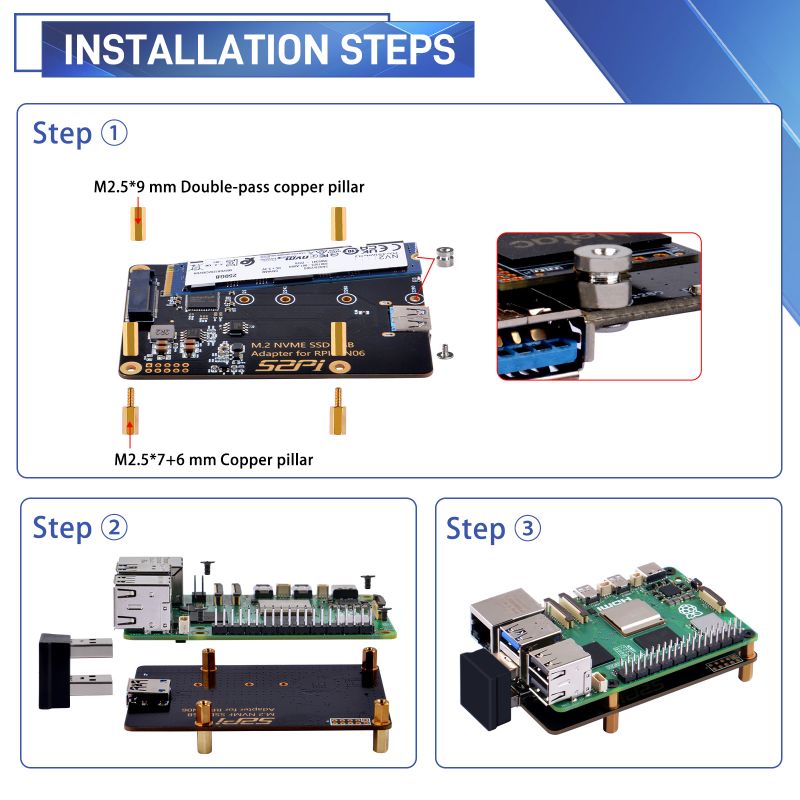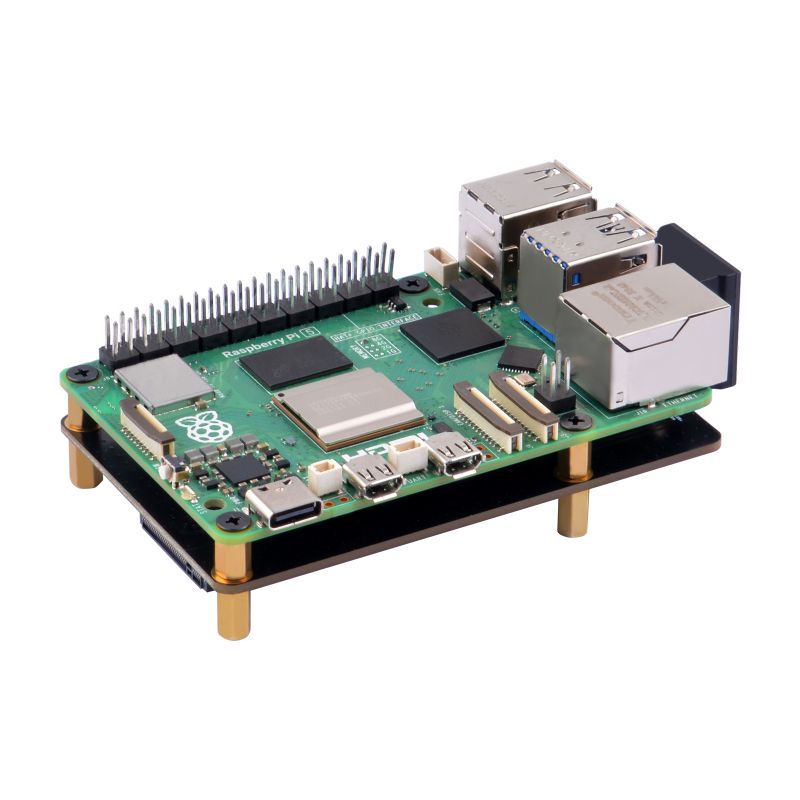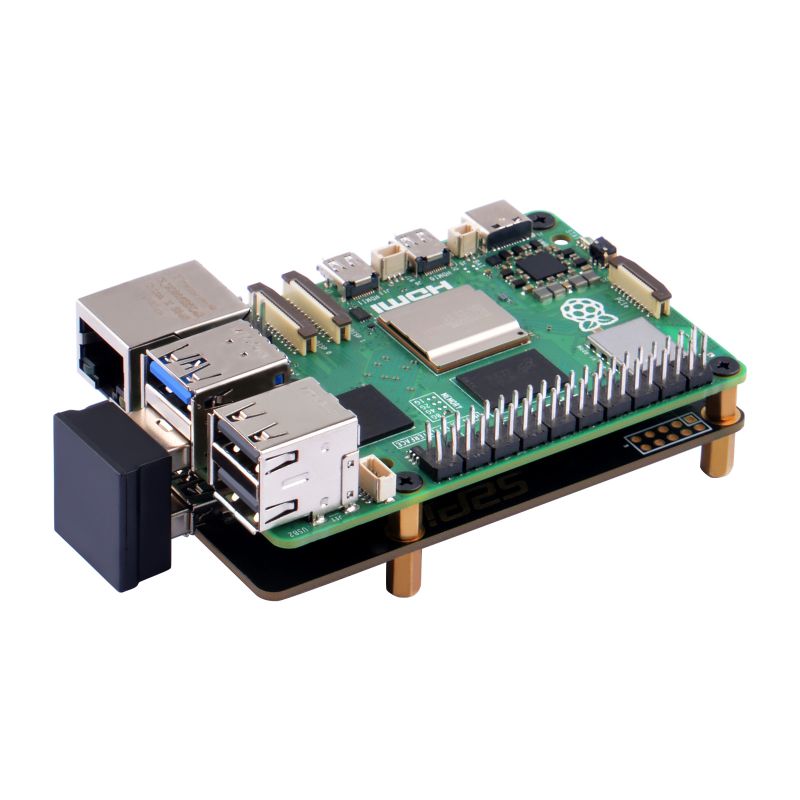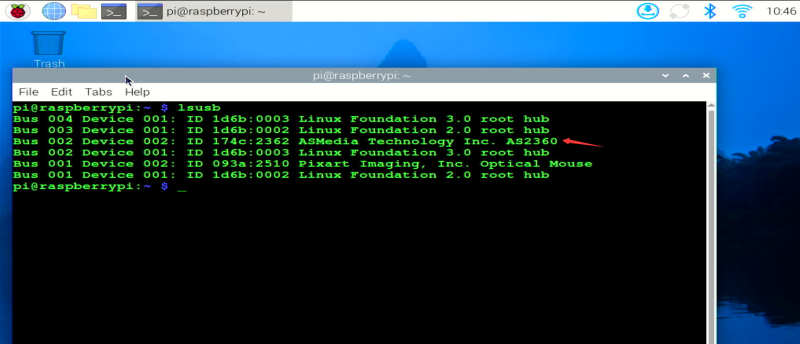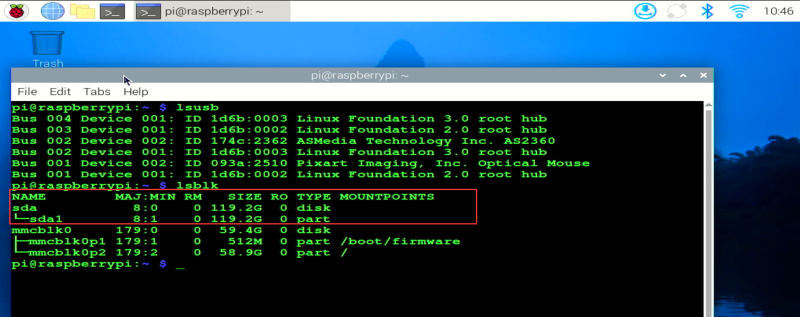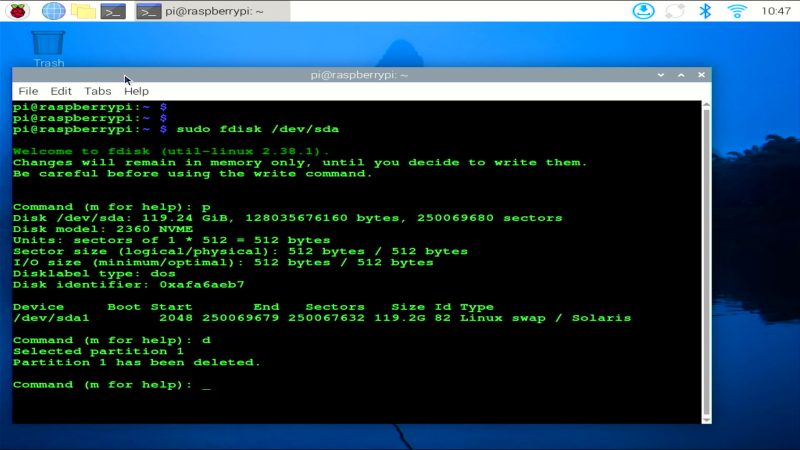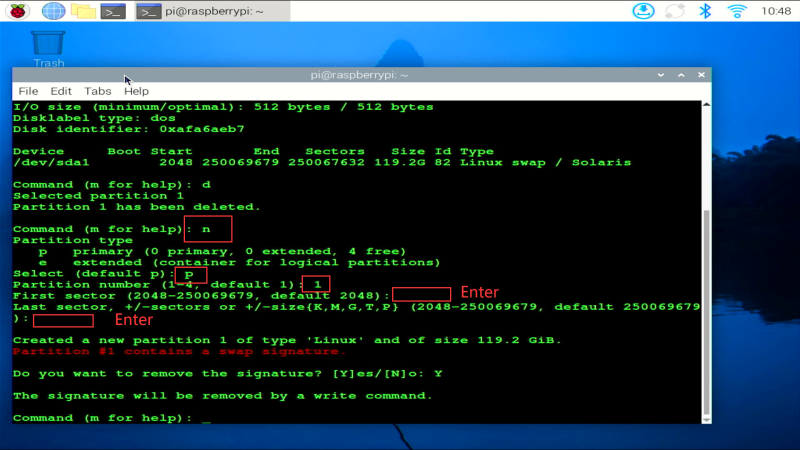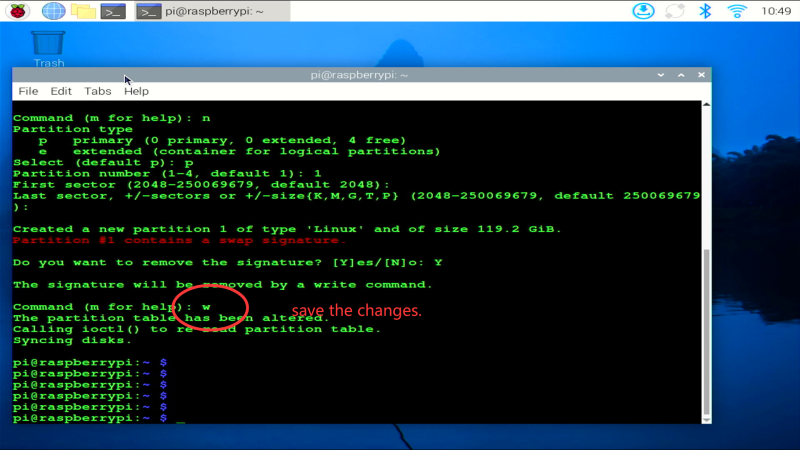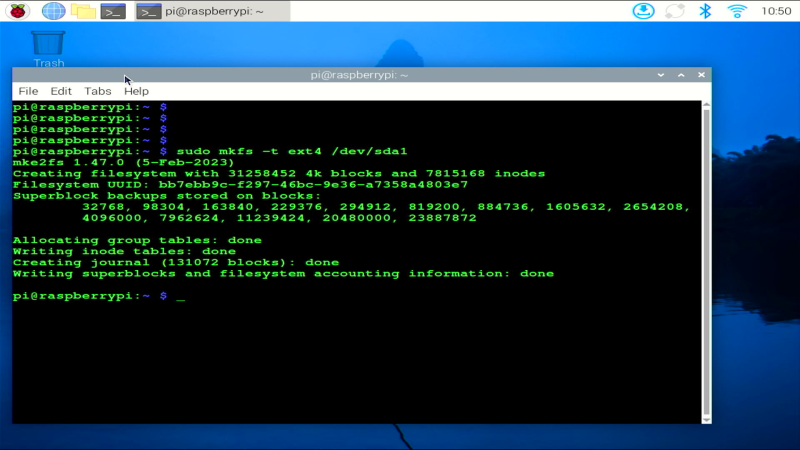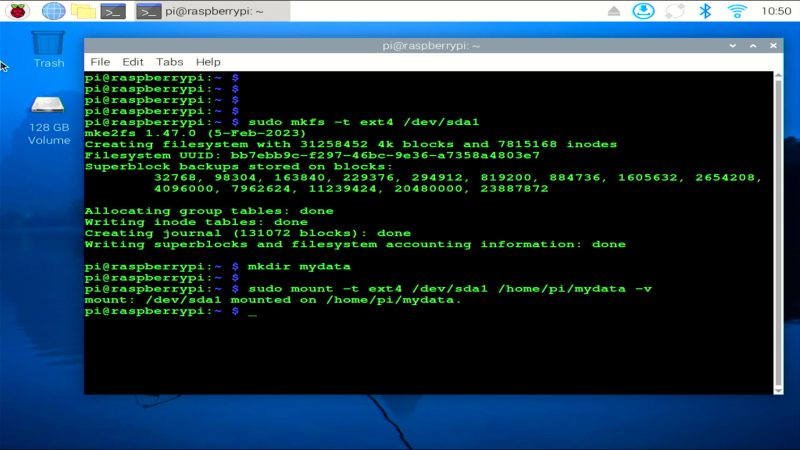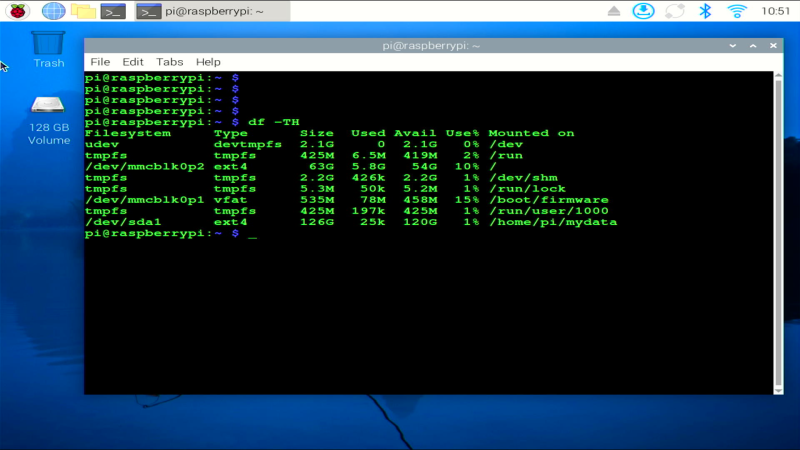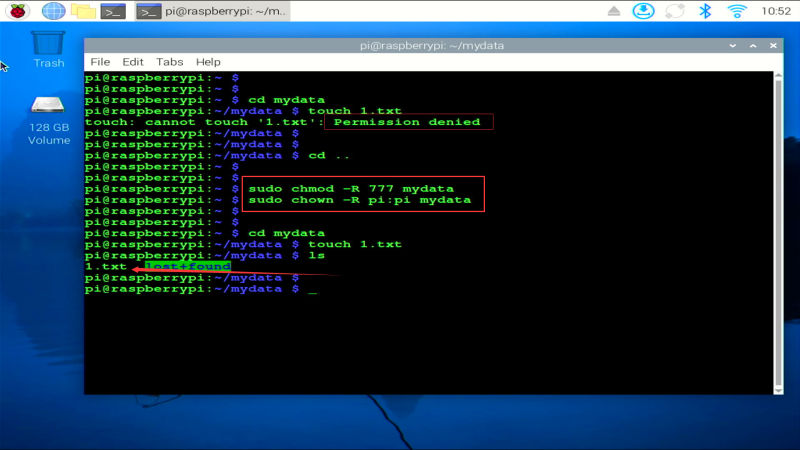EP-0239: Difference between revisions
| (8 intermediate revisions by the same user not shown) | |||
| Line 3: | Line 3: | ||
== Descriptions== | == Descriptions== | ||
The N06 M.2 NVMe SSD USB Adapter is a compact and versatile expansion board designed to seamlessly integrate with the Raspberry Pi 5. It provides a convenient way to connect M.2 NVMe SSDs to your Raspberry Pi via a USB 3.0 interface, enhancing storage capabilities without the need for additional cabling or system configuration changes. | The N06 M.2 NVMe SSD USB Adapter is a compact and versatile expansion board designed to seamlessly integrate with the Raspberry Pi 5. It provides a convenient way to connect M.2 NVMe SSDs to your Raspberry Pi via a USB 3.0 interface, enhancing storage capabilities without the need for additional cabling or system configuration changes.</br> | ||
<font color=red> NOTE: This adapter board support M.2 NVME ONLY!!! And only support our own USB converter! </font><br> | |||
<font color=red> NOTE: This adapter board support M.2 NVME ONLY!!! And only support our own USB converter! </font><br> | |||
<font color=red> NOTE: This adapter board support M.2 NVME ONLY!!! And only support our own USB converter! </font><br> | |||
==Features== | ==Features== | ||
| Line 15: | Line 19: | ||
* <strong>Form Factor: </strong> M.2 NVMe SSD Adapter | * <strong>Form Factor: </strong> M.2 NVMe SSD Adapter | ||
* <strong>Interface: </strong> USB 3.0 Type-A to M.2 | * <strong>Interface: </strong> USB 3.0 Type-A to M.2 | ||
* <strong> | * <strong>SSD Sizes Supported: </strong> 2230, 2242, 2260, 2280 | ||
* <strong>Data Transfer Rate: </strong> Up to the maximum speed supported by USB 3.0 (5 Gbps) | * <strong>Data Transfer Rate: </strong> Up to the maximum speed supported by USB 3.0 (5 Gbps) | ||
* <strong>*Operating Temperature: </strong> 0°C to 70°C (32°F to 158°F) | * <strong>*Operating Temperature: </strong> 0°C to 70°C (32°F to 158°F) | ||
| Line 22: | Line 26: | ||
==Gallery== | ==Gallery== | ||
* Product outlook | |||
[[File:EP-0239-01.jpg|left|800px]] | |||
<br style="clear:both;"> | |||
[[File:EP-0239-02.jpg|left|800px]] | |||
<br style="clear:both;"> | |||
* Dimension | |||
[[File:EP-0239-03.jpg|left|800px]] | |||
<br style="clear:both;"> | |||
* M.2 NVMe SSD size supported | |||
[[File:EP-0239-06.jpg|left|800px]] | |||
<br style="clear:both;"> | |||
==Package Includes== | |||
[[File:EP-0239-清单.jpg|left|800px]] | |||
<br style="clear:both;"> | |||
===How to assemble it?=== | ===How to assemble it?=== | ||
* Please assemble it according to following figure. | |||
== | [[File:EP-0239-IN.jpg|left|800px]] | ||
<br style="clear:both;"> | |||
* Result: | |||
[[File:EP-0239-04.jpg|left|800px]] | |||
<br style="clear:both;"> | |||
[[File:EP-0239-05.jpg|left|800px]] | |||
<br style="clear:both;"> | |||
==How to check the disk and use it?== | |||
* Boot up your Raspberry Pi, and open a terminal, and typing following command to check if the disk has been recognized: | |||
<pre> | |||
lsusb | |||
lsblk | |||
</pre> | |||
The output be like: | |||
[[File:Lsblk-device2.png|left|800px]] | |||
<br style="clear:both;"> | |||
[[File:Lsblk-device3.png|left|800px]] | |||
<br style="clear:both;"> | |||
* Partitioning the NVMe SSD by using `fdisk` command: | |||
Please NOTE: Backup your important data before you do next step!!!! This step will clean up all of your data on the disk!!! | |||
<pre> sudo fdisk /dev/sda | |||
</pre> | |||
[[File:Lsblk-device4.png|left|800px]] | |||
<br style="clear:both;"> | |||
Create new partition by following figure: | |||
[[File:Lsblk-device5.png|left|800px]] | |||
<br style="clear:both;"> | |||
Do remember save the partition table by using `w` command. | |||
[[File:Lsblk-device6.png|left|800px]] | |||
<br style="clear:both;"> | |||
* Formating the Partition by using `mkfs` command: | |||
<pre> | |||
sudo mkfs -t ext4 /dev/sda1 | |||
</pre> | |||
or | |||
<pre> | |||
sudo mkfs.ext4 /dev/sda1 | |||
</pre> | |||
[[File:Lsblk-device7.png|left|800px]] | |||
<br style="clear:both;"> | |||
and then make a directory as the disk mounting point, and mount the partition to mounting point: | |||
<pre> | |||
mkdir mydata | |||
sudo mount -t ext4 /dev/sda1 /home/pi/mydata -v | |||
</pre> | |||
you can change the mounting point as your own. | |||
[[File:Lsblk-device8.png|left|800px]] | |||
<br style="clear:both;"> | |||
* Check the status of the mounting disk | |||
[[File:Lsblk-device9.png|left|800px]] | |||
<br style="clear:both;"> | |||
* Grant privileges to your account and try to create a test file in it: | |||
[[File:Lsblk-device10.png|left|800px]] | |||
<br style="clear:both;"> | |||
==Keywords== | ==Keywords== | ||
* N06 M.2 NVME SSD USB Adapter for RPi 5, USB adapter for RPi 5, M.2 NVME SSD adapter, Raspberry Pi 5 USB disk expansion board. | * N06 M.2 NVME SSD USB Adapter for RPi 5, USB adapter for RPi 5, M.2 NVME SSD adapter, Raspberry Pi 5 USB disk expansion board. | ||
Latest revision as of 14:59, 15 May 2025
N06 M.2 NVME SSD USB Adapter for RPi 5
Descriptions
The N06 M.2 NVMe SSD USB Adapter is a compact and versatile expansion board designed to seamlessly integrate with the Raspberry Pi 5. It provides a convenient way to connect M.2 NVMe SSDs to your Raspberry Pi via a USB 3.0 interface, enhancing storage capabilities without the need for additional cabling or system configuration changes.
NOTE: This adapter board support M.2 NVME ONLY!!! And only support our own USB converter!
NOTE: This adapter board support M.2 NVME ONLY!!! And only support our own USB converter!
NOTE: This adapter board support M.2 NVME ONLY!!! And only support our own USB converter!
Features
- USB 3.0 Interface: Communicates with the Raspberry Pi 5 using a single USB 3.0 connection for both power and data transfer.
- Plug-and-Play: Instantly recognized by the Raspberry Pi without the need for system modifications or additional drivers.
- Versatile SSD Support: Compatible with a range of M.2 NVMe SSD sizes including 2230, 2242, 2260, and 2280.
- Easy Installation: Designed to be mounted on the bottom of the Raspberry Pi for a clean and tidy setup.
- High-Speed Data Transfer: Leverages the USB 3.0 bandwidth to achieve high read/write speeds, enhancing the overall performance of the Raspberry Pi.
Specifications
- Form Factor: M.2 NVMe SSD Adapter
- Interface: USB 3.0 Type-A to M.2
- SSD Sizes Supported: 2230, 2242, 2260, 2280
- Data Transfer Rate: Up to the maximum speed supported by USB 3.0 (5 Gbps)
- *Operating Temperature: 0°C to 70°C (32°F to 158°F)
- Storage Capacity: Varies depending on the SSD used (up to 4TB as per current SSD offerings)
- Power Requirements: Powered through USB 3.0 connection
Gallery
- Product outlook
- Dimension
- M.2 NVMe SSD size supported
Package Includes
How to assemble it?
- Please assemble it according to following figure.
- Result:
How to check the disk and use it?
- Boot up your Raspberry Pi, and open a terminal, and typing following command to check if the disk has been recognized:
lsusb lsblk
The output be like:
- Partitioning the NVMe SSD by using `fdisk` command:
Please NOTE: Backup your important data before you do next step!!!! This step will clean up all of your data on the disk!!!
sudo fdisk /dev/sda
Create new partition by following figure:
Do remember save the partition table by using `w` command.
- Formating the Partition by using `mkfs` command:
sudo mkfs -t ext4 /dev/sda1
or
sudo mkfs.ext4 /dev/sda1
and then make a directory as the disk mounting point, and mount the partition to mounting point:
mkdir mydata sudo mount -t ext4 /dev/sda1 /home/pi/mydata -v
you can change the mounting point as your own.
- Check the status of the mounting disk
- Grant privileges to your account and try to create a test file in it:
Keywords
- N06 M.2 NVME SSD USB Adapter for RPi 5, USB adapter for RPi 5, M.2 NVME SSD adapter, Raspberry Pi 5 USB disk expansion board.
